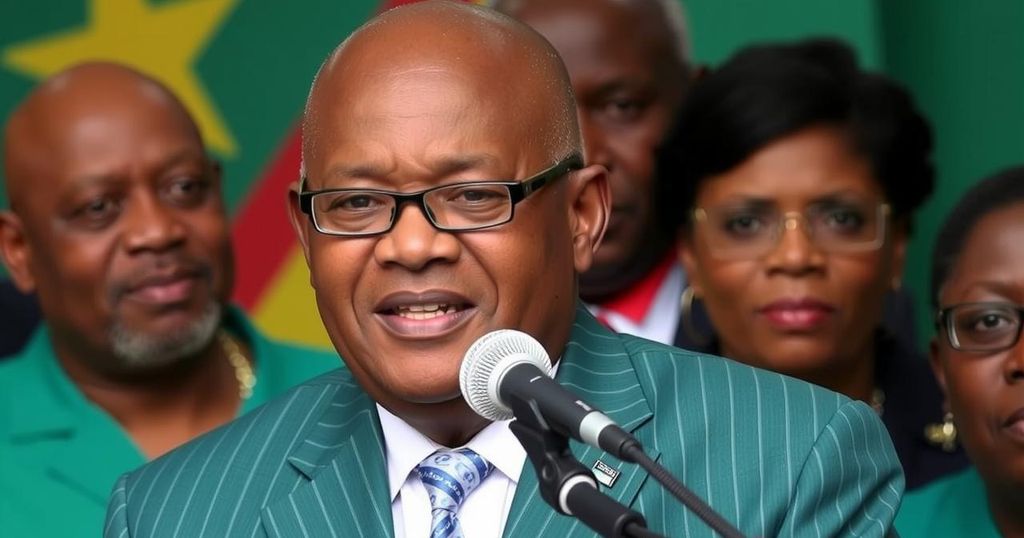Mozambique’s Constitutional Council Confirms Frelimo Party Election Outcome

Mozambique’s highest court has confirmed the ruling Frelimo party’s victory in the October elections, reducing the initial vote count for Frelimo’s candidate, Daniel Chapo, from nearly 71 to 65 percent. Tensions are rising in Maputo due to allegations of electoral fraud and ensuing protests, with multiple casualties reported since the elections. Chapo is set to become the first president born post-independence, while opposition leader Venancio Mondlane claims the election was stolen and has fled the country amid fears for his safety.
Mozambique’s Constitutional Council has validated the contentious results of the October elections, further entrenching the Frelimo party’s dominance, now spanning five decades. The revised outcome indicated that Daniel Chapo, the ruling party’s candidate, received 65 percent of the vote, a decrease from the nearly 71 percent reported by the National Electoral Commission previously. In contrast, Venancio Mondlane of Podemos garnered 24.19 percent, while Renamo’s Ossufo Momade and MDM’s Lutero Simango received 6.62 and 4 percent, respectively. Requests for a recount by Podemos and calls for new elections from Renamo and MDM were dismissed. Following this announcement, tensions escalated in Maputo, with businesses closing down and police barricading key roads to contain protests, which have been exacerbated by reports of electoral irregularities and violence. Mondlane, claiming his electoral victory was illegitimately taken, has sought refuge abroad due to safety concerns, while Chapo is poised to assume office as Mozambique’s first president born post-independence. Observers fear the court’s decision may further incite civil unrest, compounded by recent tragic events including the deaths caused by Cyclone Chido.
The Constitutional Council’s ruling on Mozambique’s election results is significant as it underscores longstanding political tensions in a country where the ruling Frelimo party has ruled since independence from Portugal in 1975. The elections in October were marred by allegations of fraud and irregularities, leading to violent street protests claiming over 100 lives. In this context, the court’s decision is poised to impact national stability as political factions continue to contest the legitimacy of electoral processes. The situation is further complicated by the recent destructive hit of Cyclone Chido, which has added to the humanitarian crisis.
The validation of Frelimo’s election victory by Mozambique’s highest court amid mounting tensions illustrates a contentious political landscape rife with conflict and dissatisfaction. With accusations of fraud and increasing unrest, the situation remains precarious as the nation braces for potential upheaval under the new leadership of Daniel Chapo. This transition, marked by historic implications, necessitates careful attention to ensure that civil liberties and political stability are preserved in the wake of recent turmoil.
Original Source: www.rfi.fr







